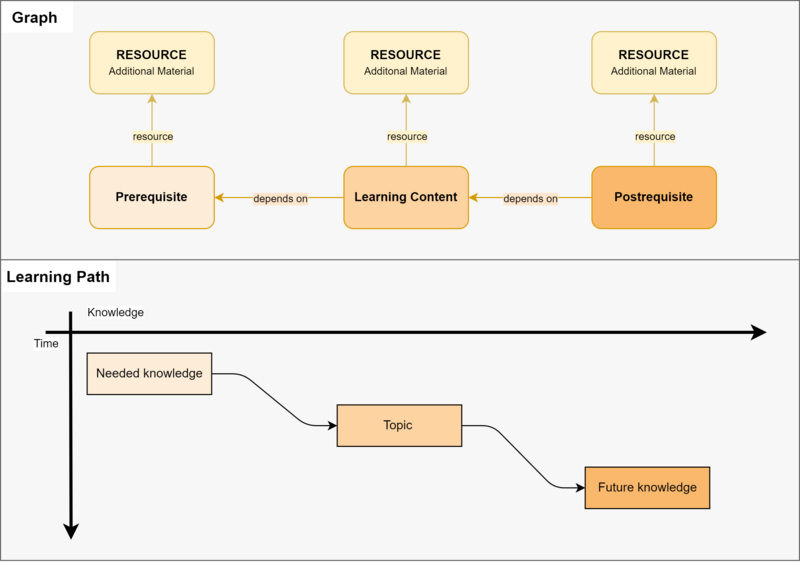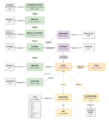Quick Overview
The Dependency Graph
At the lowest level the graph is structured by linking learning contents to its prerequisite(s) and useful resources. A student can now use these links to determine how items depend on each other, and what knowledge is required to understand a specific item.
In the end the graph turns into a big interconnected structure:
In order to make this amount of data useable, several Structure-Items have been defined to help group items into abstract categories.
For a more detailed explanation of the entire underlying structure go to GraphStructure or take a quick look at these following diagrams:
Using the Graph
The graph itself is just a versatile data structure. In order to make it usable, we are developing tools and visualizations. The SPARQL query language offered by WikiBase allows for retrieving relevant parts of the graph and visualizing it in different ways.
Hint: On each interactive visualization on this page, you can click on the "GraphIT Query Service" link in the lower left corner. This opens a new tab which shows you the SPARQL query and allows you to modify it.
Timeline of Course Sessions
This visualization shows all sessions of the course "Computer Graphics and Image Processing" and the topics they covered in a timeline.
Overview of Student
Shows what items a Student is has linked their item to. Can be used to track progress.
Learning path
The complete path to an item (here: Virtual Cameras) and what's next.
The learning path to an item, showing its pre- and postrequisites
Course Work
What items are used in a mandatory coursework:
The learning path to wd:Q451



